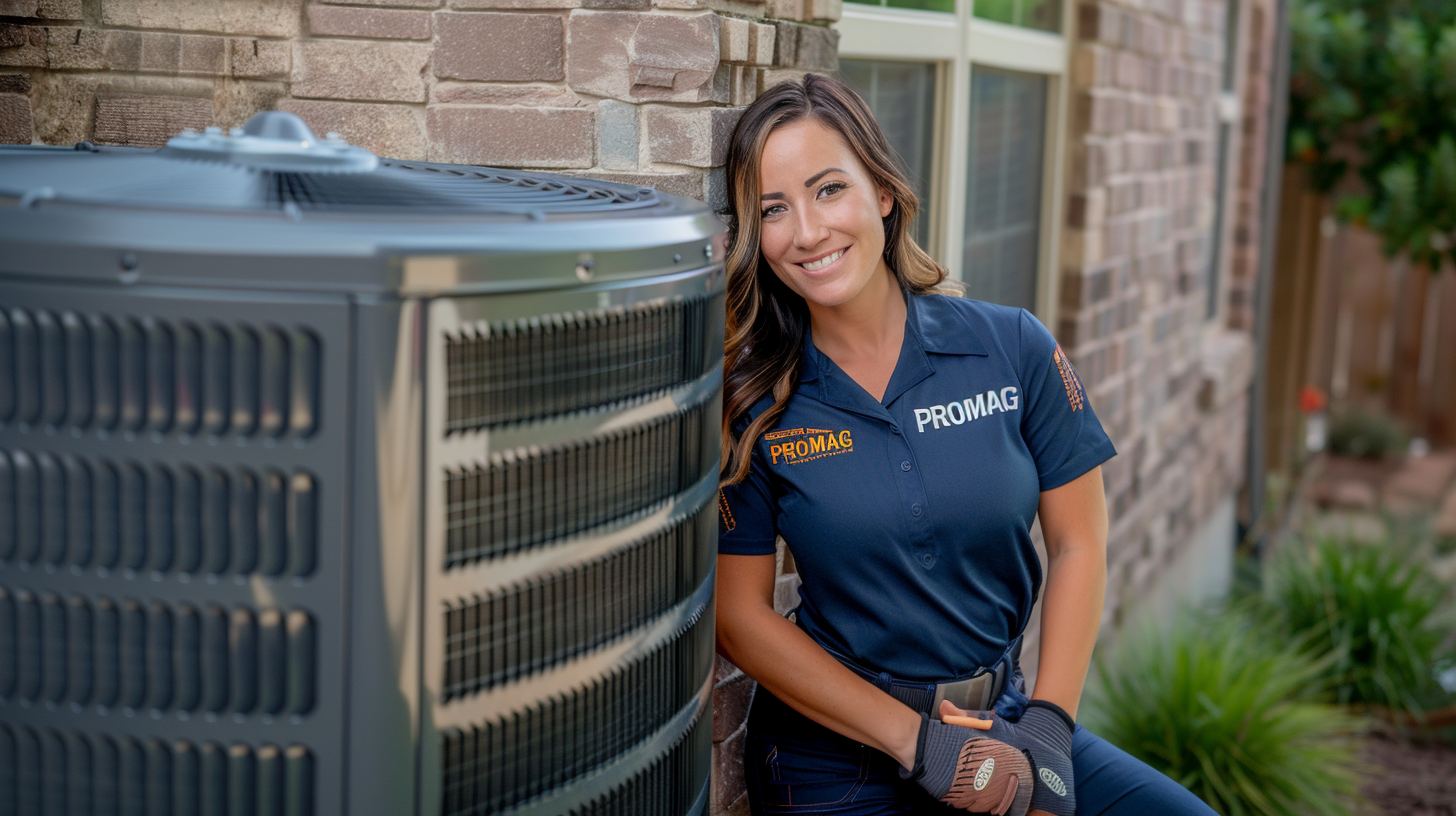Energy-Efficient HVAC Equipments to Reduce Utility Costs
As power costs proceed to rise, the importance of energy-efficient A/c systems becomes significantly obvious. These systems not just promise significant cost savings on utility costs but additionally contribute to a much more sustainable future by reducing energy usage.
Advantages of Energy-Efficient Cooling And Heating Equipments
Energy-efficient A/c systems supply numerous advantages that expand past plain cost financial savings. By taking in much less energy, these systems add to decrease greenhouse gas emissions, helping to battle climate change and advertise sustainability.
In addition, energy-efficient cooling and heating systems typically provide boosted convenience levels. Numerous of these systems feature innovative modern technology that allows for far better temperature control and improved air high quality (DMAKS HVAC). This causes a healthier interior atmosphere, which is particularly essential for people with allergies or respiratory system issues
Furthermore, investing in energy-efficient HVAC systems can boost home value. As more consumers focus on energy effectiveness, homes and buildings outfitted with these systems might draw in higher quotes in the property market.
Kinds Of Energy-Efficient HVAC Options
Exactly how can home owners and organizations choose the most appropriate energy-efficient HVAC choices for their needs? The market uses a variety of energy-efficient a/c systems, each designed to boost comfort while decreasing energy intake.
One alternative is the variable refrigerant flow (VRF) system, which successfully manages the temperature in several zones within a building. This system adjusts its refrigerant circulation to match the desired temperature level, bring about considerable power financial savings.
One more popular selection is geothermal warmth pumps, which make use of the planet's steady temperature level to warmth and amazing areas. By moving heat to and from the ground, these systems show excellent efficiency, specifically in modest environments.
Furthermore, ductless mini-split systems give an energy-efficient choice for homes doing not have ductwork. These systems permit for zone-specific cooling and heating, decreasing power waste in vacant locations.
Last but not least, high-efficiency heaters and air conditioning unit, with advanced SEER and AFUE ratings, offer dependable environment control while consuming less energy than standard versions. By examining these choices, property owners and companies can choose a cooling and heating system customized to their details needs and energy effectiveness goals.
Trick Features to Take Into Consideration

Next, investigate the kind of compressor used in the system. DMAKS HVAC. Variable-speed compressors can adjust their output to match the home heating or cooling down demand, leading to enhanced comfort and power financial savings compared to single-speed designs. Additionally, try to find systems outfitted with smart thermostats that provide programmable settings and remote access, enabling for far better control over power usage
One more crucial attribute is the system's air filtering capacity. High-efficiency filters can boost indoor air quality and decrease power consumption by making sure the system runs successfully. Consider the type of cooling agent made use of; modern systems usually employ environment-friendly cooling agents that have a reduced ecological impact.
Last but not least, make sure that the system is compatible with zoning technology, which allows for customized temperature level control in different locations of your home, enhancing comfort while minimizing energy usage.
Tips for Choosing the Right System


Following, take into consideration energy efficiency ratings, especially the Seasonal Energy Effectiveness Proportion (SEER) for cooling down systems and the Annual Gas Application Efficiency (AFUE) for heater. Greater rankings indicate greater performance, which this contact form can lead to substantial cost savings on energy costs gradually.
Additionally, evaluate the sort of a/c system that best fits your way of life and budget. Options consist of air conditioning, ductless mini-splits, and warmth pumps, each with its very own set of benefits and drawbacks.
Do not ignore the significance of proper installment and sizing; an inaccurately sized system can result in ineffectiveness and raised wear. Last but not least, seek advice from a professional HVAC contractor to acquire skilled suggestions tailored to your home's one-of-a-kind demands. This extensive method will guarantee that you choose an energy-efficient cooling and heating system that satisfies your demands and budget plan properly.
Maintenance for Ideal Efficiency
Once the best heating and cooling system remains in location, recurring upkeep becomes vital to guaranteeing optimal effectiveness and longevity. A well-maintained system operates better, leading to lower Visit Your URL energy usage and lowered energy bills. Regular evaluations and tune-ups must be arranged a minimum of twice a year-- once before the air conditioning season and when before the heating period.

Home owners need to likewise be attentive concerning monitoring their HVAC system's performance. Unusual sounds, varying temperature levels, or boosted power bills can show underlying problems that call for prompt focus. By resolving these problems without delay, property owners can stop pricey repair work and prolong the lifespan of their systems.
Purchasing a maintenance plan with a certified specialist not only enhances performance but additionally offers comfort, understanding that the system is running at its best. DMAKS HVAC. Normal maintenance is for that reason crucial for sustaining energy efficiency and reducing total functional prices
Verdict
To conclude, energy-efficient cooling and heating systems provide a sensible service for lowering energy bills while improving convenience and air quality. By incorporating advanced innovations and options such as geothermal heat pumps and ductless mini-splits, homeowner can attain substantial power savings and contribute to environmental sustainability. Cautious factor to consider of system attributes and ongoing maintenance additionally makes sure optimum performance, making energy-efficient systems a prudent investment for both economic and click here for info eco-friendly benefits.